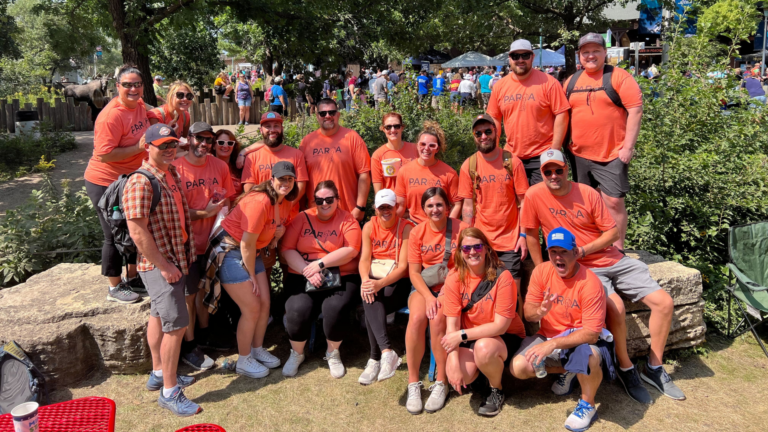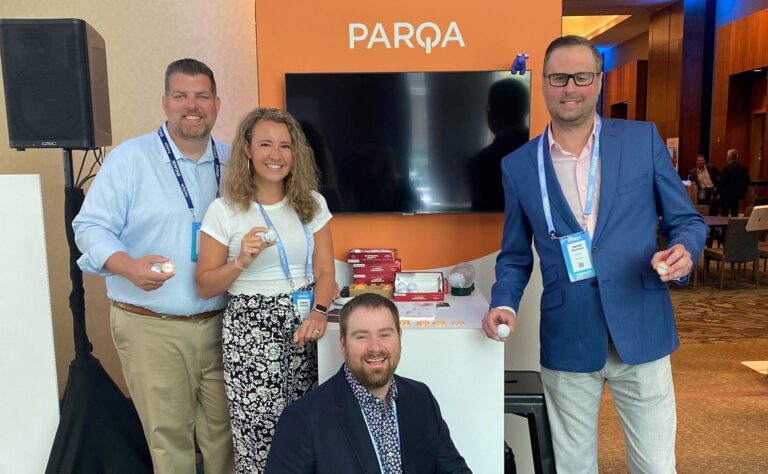Think about the last time you engaged with a recruiter for a new job. What was your experience like? Was it smooth and efficient? Did they keep you informed of your application status, what to expect next, and when to expect it?
Probably not.
The reality is that most candidates who abandon the application process do so for one reason: poor communication.
And why is that? Are recruiters just bad communicators? Do they lack organizational skills? Do they see you as just another faceless record in their database, lost in a sea of prospects? Are recruiters just rude?
Absolutely not. In fact, many recruiters I’ve worked with are true professionals who love to help people find work they enjoy and care about.
So why do recruiters seem to let job seekers down more often than not? And why on earth is the candidate experience still so far behind other consumer experiences we enjoy? Why can’t working with a recruiter be as seamless, intuitive and personalized as interacting with Apple, Amazon or Netflix?
It all comes down to recruiter efficiency.
According to Bullhorn’s GRID Talent Trends Report, three out of five of workers want recruiters to reach out at least once a week, but less than 45% say their recruiters reach out that often.
Recruiters would love to regularly talk with everyone on their roster. They’re always interested in how things are going, and the career moves people are thinking about next. They’d be thrilled to answer questions immediately, and have a plan for redeployment before a contract even ends. And they most certainly want to serve their candidates with a great experience.
The “problem” is that recruiters are human. There’s not enough of them to go around, and they simply can’t manually scale their communications—especially in this crazy job market where there are two job openings for every one person who’s unemployed.
Staffing companies have a root problem of not enough candidates. Those who want to grow have just two options: either hire more recruiters and lose margin, or use technology to communicate at scale.
Same Concept—Different Labels
When recruiters can’t be efficient—when they can’t do their jobs with quality in the shortest possible timeframe—the candidate experience suffers.
To create a good candidate experience, you need efficient recruiting operations. In fact, they’re virtually synonymous. And you just can’t have one without the other.
Clients look to tech companies to make them more efficient, and they look to marketing companies to create great experiences. But what the data tells us—and what we experience every day at Parqa at the intersection of marketing and technology—is that when recruiters are inefficient, they can’t possibly create a good candidate experience. And at the heart of that good candidate experience is—you guessed it—good communication.
What is good communication from the candidate perspective? What types of content do they respond to best? It’s serving up great content at the right time, creating personas and understanding their pain points and what matters to them. That’s all marketing, and it’s an artform. But when you can build that into workflows and communication strategies that are well timed and relevant, that makes recruiters exponentially more effective.
Good communication is a huge differentiator—and that’s key to attracting, hiring and retaining top talent.
The Differentiation-Commoditization Conundrum
Many staffing firms struggle to create differentiation because the volume they’ve taken on in the name of growth means they’ve had to commoditize their process. But the communication that defines a good candidate experience needs to be personalized, not commoditized. And the new employment landscape means that staffing firms simply can’t afford to be transactional anymore. They must be driven by relationships—not placements.
But how can recruiters possibly build relationships when they’re just one person who has perhaps hundreds of people who need different messages, at different times, based on their place in the talent lifecycle?
The Myth of the “White Glove” Experience
Some staffing firms might be resistant to trying new ways to scale their communications because they’re stuck on the idea of touting a premium service level, also known as a “white glove experience.” But who defines that experience?
Staffing companies might think the only way to deliver it is via the human touch—all the time, every time. But from the candidate perspective, a company’s reputation weighs much more heavily in their career decisions. They probably don’t care as much about a real person reaching out to them constantly. Many might even be turned off or feel burdened by that level of personal interaction.
Besides, realistically, how can you deliver a premium experience to 100,000 candidates in your database? It’s impossible to have followed their careers, and you have no insights as to which stage they’re at, what steps they might be ready to take, or how you can help. But you’re settling for the 20 people you’re working with right now who are having a premium experience? What about the other 99,980 people you already have data on who feel all but disregarded because they have yet to fit a certain job at a certain time?
The human touch and great recruiting will always have their place. Like our Executive Vice President Julie Haldorson says, “Technology doesn’t solve problems—people do.” But save the human interaction for those moments on the candidate’s journey that truly call for it, like an incoming job offer or talking through problems when a contract assignment isn’t going well. That’s when the human touch can show up and truly elevate the candidate experience.
Connected Recruiting Creates the Ideal Candidate Experience—Driven by Recruiter Efficiency
For the first time in my entire career in staffing, someone has offered a concept that leverages technology and modern digital marketing to create great experiences. The whole idea of connected recruiting is an inbound strategy—instead of having a recruiter go on Indeed, for instance, and blindly search through resumes.
What if even one of those 100,000 candidates in your database reached out and said “Hey, I’m interested in this job?” That’s recruiting efficiency. But you have to have the inbound strategy. That’s candidate experience.
Connected recruiting means there is really no dead end when it comes to the relationships you’ve already paid for the chance to create. It means that you don’t have to win the same candidates over (and over) again because you’ve stayed connected with them throughout their journey. And because you’ve invested that differentiated level of care and effort in nurturing those relationships, when the time comes, you’re the first call they’re going to make.
During a recent webinar, Julie shared how we’re applying both content personalization and automation of communications and business processes. “The more you can connect through personalization, the more individuals you can impact,” she said. “And if you can do that at scale, that’s where connected recruiting happens.”
We’re proving the power of automated communication at scale at Parqa. We built and executed a communication strategy that led to 2,100 professionals being placed in roles. That translated to $60M in revenue for our client. There is no single recruiter who could do that, but we did it for less than the price of one.
Our friends at Bullhorn sum it up well: “Agencies that leverage technology to provide a personal, streamlined experience are likely to see increased redeployment opportunities and a bolstered reputation, providing a major competitive edge when it comes to winning and retaining talent.”
Are you ready to explore the connection between recruiter efficiency and your firm’s ability to create amazing candidate experiences? Let’s start a conversation.







